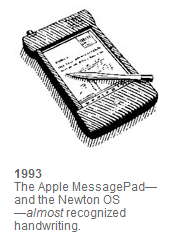April 3rd, 2012
- Love it
- I now see the world in Instagram possibilities — like, “Oooh, that would make a good Instagram shot”
- It’s worth it to me to pull over my car and grab a unique shot
- You should follow me: davelawrence8 (natch)
- You can usually tell who gets a new iPhone: they tend to join Instagram shortly after
- Android users: welcome to the party
- I have yet to get a Camera+-save-then-upload-to-Instagram workflow that I really like, but sometimes I will edit a photo in something like Snapseed and then post it to Instagram
- Speaking of which: if you’re not using mobile photos for Instagram, you’re cheating
- One or two photos a day is fine. Five in a row of your kid or your lunch is not fine
- Scenery, architecture, and skyline shots are fun, but my favorite Instagrams are the ones that capture an idea, or a mood, or a single object in a unique way
Posted by davelawrence8 at 12:17 pm on April 3rd, 2012. Categories: ipod/iphone. Tags: android, instagram, iphoneography, photography, photos, pics. Subscribe via RSS.
August 18th, 2010
“I don’t need a phone. What I need is a mobile communications device that can also manage my contact, calendar, and run some useful apps. That’s how I started down my path of indispensable electronic do-dads with the Apple MessagePad 130, aka the Newton 130.”
– Joe Levi at Pocketnow.com.
Posted by davelawrence8 at 5:32 am on August 18th, 2010. Categories: messagepad, quote. Tags: android, apple, messagepad, mp130, newton, nexus one. Subscribe via RSS.
June 22nd, 2010
“Verizon has reached a powerful point in their marketing: for Verizon customers curious about the iPhone, Droid is close enough. Close enough is powerful, and Apple is rapidly losing ground to it.”
– Marco Arment on a possible Verizon iPhone. His theory is that Apple will continue to lose ground to Verizon’s Droid if it doesn’t release a CDMA iPhone. As long as you can walk into a phone store that isn’t AT&T and pick up an Android smart phone, often for free, Marco’s right – it’ll be good enough.
Posted by davelawrence8 at 2:58 pm on June 22nd, 2010. Categories: ipod/iphone, quote. Tags: android, at&t, cdma, droid, gsm, iphone, marco arment, verizon. Subscribe via RSS.
April 3rd, 2010
“A signature of Apple’s design philosophy is not to just fire-hose features into a product. They like to believe that if they add something, it contributes way more value than what its presence will cost the user, and that the feature is consistent with the ‘story’ of this product. I’ve seen Android tablets with every kind of port and other hardware feature built-in. Mostly, their purpose is to be something that the marketers and the users can point to and say ‘See? Look what this has that yours doesn’t.’
Sometimes they actually enhance the device. Mostly, though, they’re like a third nipple. Good for conversation, but functionally useless.”
– Andy Ihnatko. Feature lists are great, but they’re not everything. I’m keeping track of some Android fans that say, because the iPad is missing some items, it’s going to be a failure. They tend to concentrate on the wrong thing, like iMac haters did when Apple dumped the floppy disk.
Posted by davelawrence8 at 2:00 pm on April 3rd, 2010. Categories: apple, ipad. Tags: android, features, ihnatko, ipad. Subscribe via RSS.
March 31st, 2010
Steven Levy’s concise, polished view of the tablet revolution in this month’s Wired (I’m a magazine subscriber) gives a nod to the Newton in one of the “tablets through the ages” sidebar. It was the polite thing to do after talking about Apple’s iPad, the failed Windows Tablet, and the possibility of a Google Chrome OS tablet in the near future.
What’s amazing is that Apple has released some high-tech dopamine in tech pundit’s pleasure zones. Some connection has been made between the iPad, the future of computing, and the hypothalamus – and Levy says the victim will be the graphical user interface we know and (perhaps) love:
One thing we do know is that a heated battle is breaking out over the grave site of the GUI. While unveiling the most heralded Apple product since the iPhone, Jobs presented a powerful and compelling vision of what comes next.
This is the fascinating part of this whole storyline: that now, at the crux of touchscreens and cloud computing and the gee-whiz interface Apple has created, we’ve reached Nirvana.
Which makes me wonder about other visions of the future, particularly Google’s. After playing around with a few Android devices, I can imagine some powerful tablets featuring Google’s mobile operating system. Forget Chrome OS; Android, to me, offers a much more compelling option if you want to pit the iPad against a true rival.
The open app system, the configurability, the relative polish, the touchscreen interface. It’s all there. For some, the iPad’s computing appliance metaphor is what they’ve always wanted. Less details, less trouble.
But for geeks, an Android-powered tablet is a something to think about.
In any case, it’s nice that the editors at Wired gave the Newton a bit of credit for helping to usher in this Tablet Era – and rightfully so. Rarely is a technology born in the water fully-formed. There are incremental steps along the way. The plow led to the horse-drawn plow led to the John Deere A (that my father, and many farmers, collect) to the modern giant thresher. And just like farmers like to admire and appreciate the classic John Deeres (my dad used to drive one in our town’s Independence Day parade), we can appreciate the quirks and personality of the Newton.
Also, those classic tractors are still useful and running well, with some maintenance. We keep our MessagePads and eMates chugging along as well, even when iPads have passed them by.
Posted by davelawrence8 at 6:33 am on March 31st, 2010. Categories: ipad, messagepad. Tags: android, apple, chrome OS, google, ipad, messagepad, newton, tablet, wired. Subscribe via RSS.
March 5th, 2009

Sometimes it’s fun to see how the other guys do it. In this case, T-Mobile is offering a G1 simulator running Google’s Android operating system.
It’s really an Adobe Flash-based simulator, but it gives you a good feel for how the G1’s music player (above), contacts, and apps behave. Most of all, it’s neat to see how another touch-screen phone other than the iPhone operates.
Hopefully, Palm will do something similar when they release the Palm Pre.
Posted by davelawrence8 at 6:07 am on March 5th, 2009. Categories: smartphones, software. Tags: android, cell phone, G1, portable, t-mobile, touch screen. Subscribe via RSS.
October 14th, 2008

Owning an iPhone and a Newton, it’s always fun to poke around at other mobile operation systems when I get the chance. The other day, I put my stylus on a Palm for the first time, and got to play around with it for a bit.
Gizmodo puts all the major smartphone OSes – RIM’s Blackberry, Apple’s iPhone, Windows Mobile, for instance – against each other in a run down of features, pros, and cons.
The only classic mobile OS in the bunch is the “basically dead” Palm OS in the Centro, which is sad, considering (a) the Palm OS looks so dated with the other systems and (b) Palm succeeded where the Newton did not in a lot of ways. Now it’s a dying system.
Posted by davelawrence8 at 11:38 am on October 14th, 2008. Categories: software. Tags: android, blackberry, centro, google, iphone, ipod, messagepad, newton, OS, palm, RIM, symbian, windows mobile. Subscribe via RSS.
September 3rd, 2008

Is Google’s Android mobile platform the Newton fan’s savior at bringing a Newton-clone app to fruition?
When Apple announced the iPhone SDK, I wondered whether someone could use it to develop an Einstein-based Newton app – even just to mess around with – for Apple’s Mobile OS X.
Because of the licensing agreement, a Newton app is probably impossible. But on the open-source Android OS and its new Android Market, the dream of a modern-day Einstein hack might be realized.
Now that Android has its own “app store,” some bootstrapping developer could do something really cool. A touch screen, a stylus, some sort of handwriting recognition, and access to the OS’s dates and contacts and notes, and you might be all set.
I’m positive its nowhere near that simple to develop a Newton emulator for a mobile phone. But one can dream, right?
Posted by davelawrence8 at 5:27 am on September 3rd, 2008. Categories: newton, software. Tags: android, android market, app store, einstein, emulator, google, gphone, iphone, newton. Subscribe via RSS.



